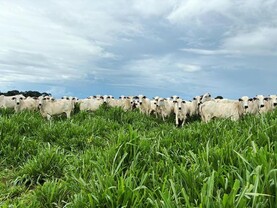While EU member states battle to bring COVID-19 under control, consideration is being given to rebuilding the shattered economies of the EU. Farmers are looking to Commissioner Wojciechowski to deliver for them, but an €80m private storage aid package looks miniscule compared to the $19bn committed in the US.
Who is he?
The commissioner’s political life began in the Polish Peoples Party, known as the farmer’s party and he is a lawyer by profession, having served as a judge in Poland. He was first elected to the EU Parliament in 2004 and served until 2016, when he was appointed to the European Court of Auditors, a role he served until his appointment to the Commission.
His career as a commissioner almost didn’t happen, because he failed to get approval at the first attempt by the Parliament’s Agriculture and Environment committees. Their role is to scrutinise and approve appointments of commissioners, as part of the commission ratification process and it was certainly an unfortunate start.
First impressions in the job
Commissioner Wojciechowski’s first major exposure was at the two-day outlook conference in December. First impressions are important and what was most striking was that he shared the stage with the health commissioner Stella Kyriakides, who assumed responsibility for animal health and welfare in her portfolio.
What was even more striking was the fact that the agriculture contribution to the Green Deal theme of the new Commission would be detailed in a “farm to fork” strategy, to be developed this spring and now delayed until the autumn.
Commissioner Kyriakides spoke of her ambition to reduce the use of fertiliser, pesticides and antibiotics as the central planks of the strategy, with an ever increasing focus on sustainability. Commissioner Wojciechowski highlighted his priority for organic production and a desire to make it affordable for more consumers.
He also voiced concern about transporting livestock over long distances and appeared at odds with EU trade policy in highlighting the long distance transporting of soya from America.
COVID-19 challenge
If the commissioner’s first 100 days were uneventful, the next 100, and indeed the remainder of the term, will be dominated by the consequences of COVID-19. At a time of unprecedented threat to public health, the EU institutions in general have struggled. Member states have battled the pandemic individually and Italy certainly felt abandoned in the early stages of its outbreak.
Overall, the EU has been playing catch up. Even before the crisis, it couldn’t agree a budget for the next multi-annual financial framework. Discussions on an economic recovery have revealed longstanding tensions among the wealthy economies of northern Europe, who do not want to be exposed to the weaker southern states.
Commission response
Notwithstanding the difficulties faced by EU institutions, the agriculture commission has appeared slow to act. Relaxation of state aid rules, creation of green food transport lanes and extension of deadlines for applications are meaningless to farmers as they watch beef prices plummet and steak meat become unsalable.
The contrast with the US is striking where, despite widespread criticism of the president’s handling of COVID-19, real money has been put in place to support US farmers.
In Europe, the commissioner appeared before the Parliament’s agriculture committee last week and made it clear that he didn’t have the money. A belated introduction of private storage aid will create some breathing room for dairy, but is of little benefit to the beef sector, where steak meat is devalued by freezing for long-term storage.
He also spoke again of shortening the distance between the farm and the fork in the supply chain, which sends a very mixed message to farmers on EU policy in regard to beef imports from South America.
The commissioner, like so many of his colleagues, is handling a very difficult situation at present. However, so far Commissioner Wojciechowski has struggled to impress the farm and agrifood industry lobbies and the loss of leadership in developing the farm to fork strategy with the health commission suggests a serious weakening of the agriculture portfolio.
The drip-feed announcement of a modest support package based on private aid storage this week also suggests the commissioner is following, rather than leading. Unlike the US, the package has nothing specifically for farmers and is a fraction of the US value. It is still early in his term and he can recover by securing an adequately funded CAP, but he has ground to make up.






 This is a subscriber-only article
This is a subscriber-only article










SHARING OPTIONS: